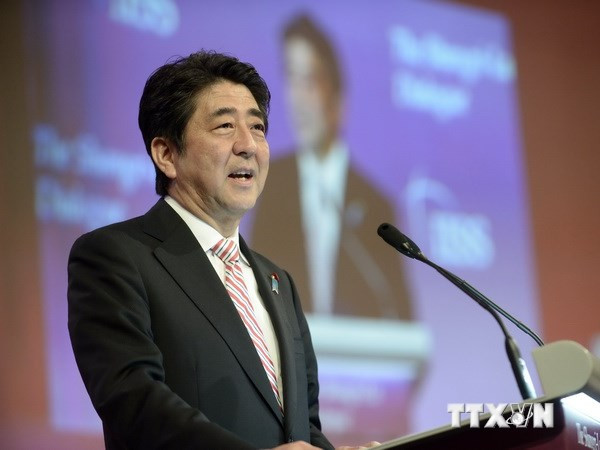Japanese government postpones approval of collective self-defense rights
According to a VNA correspondent in Japan, Japanese Prime Minister Shinzo Abe and New Komeito Party (NKP) Chairman Natsuo Yamaguchi affirmed on June 19 that the Cabinet will not approve the exercise of the right to collective self-defense until the end of the session at the National Assembly this weekend.
According to a VNA correspondent in Japan, Japanese Prime Minister Shinzo Abe and New Komeito Party (NKP) Chairman Natsuo Yamaguchi affirmed on June 19 that the Cabinet will not approve the exercise of the right to collective self-defense until the end of the session at the National Assembly this weekend.
In a meeting at the Prime Minister's Office, the leaders of the two ruling parties agreed that the Liberal Democratic Party (LDP) and its coalition partner, the NKP, will continue discussions on exercising the right of collective self-defense, which would allow the Self-Defense Forces (SDF) to defend Japan's allies against an armed attack, after the Diet session.
 |
| Japanese Prime Minister Shinzo Abe. (Photo: AFP/VNA) |
NKP Chairman Yamaguchi told reporters that the ruling coalition is currently discussing security issues and “will continue this work even after the end of the Diet session.”
Mr. Yamaguchi said it would take time for the NKP to reach a consensus and said he had discussed with the Prime Minister the different opinions within the party.
In recent days, the NKP has shown signs of softening its stance and giving the green light to a limited use of collective self-defense rights amid growing pressure from Mr. Abe on the LDP to win the support of its coalition partner.
Having started the dialogue last May at Prime Minister Abe's request, the LDP and NKP are discussing hypothetical scenarios presented by the government.
The issue of whether Japan should defend an ally against armed attack, even if it itself is not threatened, is divisive because previous administrations have long understood that the Constitution prohibits the exercise of the right of collective self-defense while the United Nations Charter allows it.
The key is that Article 9 of this supreme law prohibits the use of force to settle international disputes and allows only a minimal level of self-defense.
In the context of the changing security environment in the Asia-Pacific region, Prime Minister Abe hopes to change the understanding and abolish Japan's long-standing ban in time for the revision of the US-Japan defense cooperation guidelines from now until the end of the year, which will determine the roles and responsibilities of the SDF and the US military./.
According to VNA






